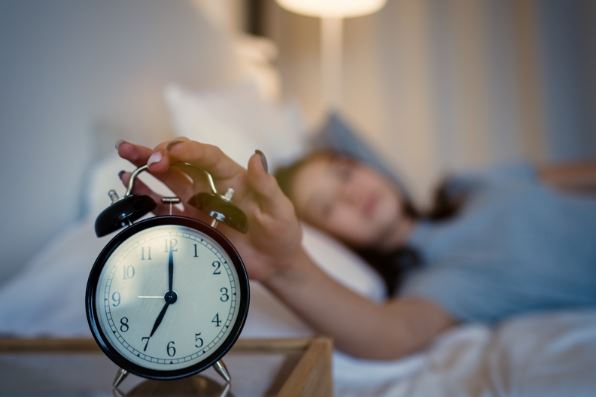Sleep is a crucial part of health and overall well-being since it plays an essential role in healing, muscle recovery, metabolism, appetite, mental health and memory. According to sleep experts, healthy adults should get at least seven hours of sleep a night. Children attending school and teenagers require 11 hours. Regardless of age, lifestyle, habits and health condition, every person should get at least 7 hours of sleep to maintain well-being.
While lack of sleep sometimes is normal, chronic lack of sleep is dangerous to our health. Managing how you sleep is essential if you want to achieve health. Not getting enough sleep can become a real stress to your body and mind, leaving you stressed, angry, tense, and sleepy, causing a lack of focus, increased appetite and slow metabolism. However, it can also lead to mental and psychical health conditions, damaging your heart health, for example.
Chronic lack of sleep can be caused by many factors, like checking your work emails late in the night, damaged circadian rhythm, too heavy dinner, stress, anxiety, depression, late exercises, and noises, to name a few. It can also be caused by sleep issues, like insomnia. However, most often, lack of sleep is caused by our habits.
That is why healthy sleep hygiene includes healthy sleep habits that can affect your sleep routine, and it is an excellent place to start. While most believe that they need to start caring about sleep only an hour before, healthy sleep starts during the day. Try including the following sleep habits to help you achieve a better night’s rest.
During the Day
More Physical Activity
Staying active allows you to not only keep your body healthy but also affect the sleep quality. However, you should exercise either early in the morning to get a great energy boost or during the day at least 4-5 hours before going to bed. Psychical activity helps relax the body, release our happy hormones, reduce stress and promote healthier sleep.
Go Out
We have internal clocks known as circadian rhythm, which is responsible for our wake-up cycle. This rhythm works best when you have enough sunlight exposure during the day, and your body feels how the time changes by the evening. In addition, sun exposure treats your body with essential Vitamin D that is linked to a higher risk of sleep diseases.
Avoid Long Napping
Napping during the day negatively affects how you sleep during the night. Even though there are days when you extremely need to nap to feel good, try to take these naps for 20-30 hours. Healthy adults need only this time to recharge a little bit and not ruin the inner clocks.
Limit Alcohol
Alcohol affects our sleep as well. If you love to drink alcohol, we recommend you do it at least 4-5 hours before sleep to let it leave the organism. In addition, if you drink too much, you will wake up during the night several times since the body will signal to the brain that it is free from chemicals and it is time to wake up, which also damages inner clocks.
Avoid Caffeine
Does coffee wake you up? Yes! Caffeine is an excellent choice to quickly wake up and go through the day for most people. However, most people can’t leave without caffeine during the day, so they drink coffee or cola all day long. While caffeine can be helpful in the morning, you should definitely avoid it in the evening. In fact, reduce caffeine consumption after midday.
Before Bed
Get Enough Sleep
Make sure you sleep for at least 7-8 hours a day. If you are a professional athlete, you will need at least 10-11 hours of sleep. In addition, you should count only deep sleep since dreams all night means your sleep wasn’t deep and quality.
Follow a Sleep Schedule
Follow the sleep schedule to allow your body to prepare for sleep and wake up as well. If you have a regular job without night calls, you need to set an accurate time when you fall asleep and wake up.
Set the Temperature
Sleep experts say that having a proper temperature in the sleeping room greatly improves the quality of sleep. The best temperature is somewhere around 65 degrees, which has been shown to promote a deeper night’s rest. However, some people may need a different temperature than experts recommend, so make sure that the temperature is right for you.
Supplements
If you have sleep issues, you are not alone. That is why the wellness market is growing so fast, offering consumers supplements specially designed to improve sleep quality and maintain circadian rhythm. For example, there is a wake ups pill and melatonin supplements, both designed to fall asleep and wake up feeling more energised.
Create a Soothing Bedtime Routine
Creating a soothing pre-sleep routine is essential for your body and mind to relax and calm down. This may include calming yoga sessions, meditation, stretching, dimming the lights, and reducing the use of devices and noises. You can also try aromatherapy with calming essential oils, like lavender, since they have been shown to reduce stress and racing thoughts.
If sleep remains a challenging task, start a sleep diary to explore more about your sleep habits, and you can even discuss it with your doctor. A sleep expert can also help you if you experience a chronic lack of sleep since the cause may be for different reasons than you thought.

